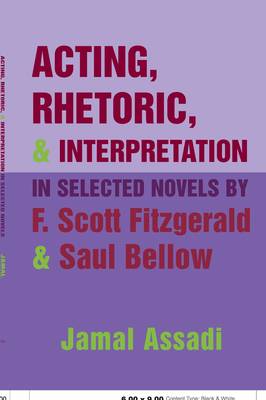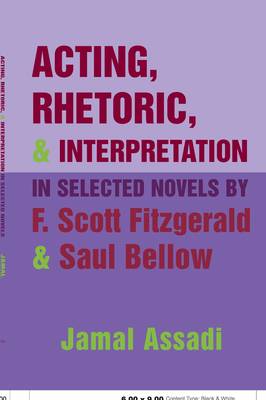
Door een staking bij bpost kan je online bestelling op dit moment iets langer onderweg zijn dan voorzien. Dringend iets nodig? Onze winkels ontvangen jou met open armen!
- Afhalen na 1 uur in een winkel met voorraad
- Gratis thuislevering in België vanaf € 30
- Ruim aanbod met 7 miljoen producten
Door een staking bij bpost kan je online bestelling op dit moment iets langer onderweg zijn dan voorzien. Dringend iets nodig? Onze winkels ontvangen jou met open armen!
- Afhalen na 1 uur in een winkel met voorraad
- Gratis thuislevering in België vanaf € 30
- Ruim aanbod met 7 miljoen producten
Zoeken
Acting, Rhetoric, & Interpretation in Selected Novels by F. Scott Fitzgerald & Saul Bellow
Jamal Assadi
Hardcover | Engels
€ 93,95
+ 187 punten
Omschrijving
This book discusses works by F. Scott Fitzgerald and Saul Bellow in terms of the conflicts between rhetorical people (actors replete with ever-changing roles, situations, and strategies, and therefore devoid of single roles) and serious people (actors who possess master situations or a referent reality to which they believe everyone can refer), players and doers, artifices and realities, words and the world, and multivocal and univocal interpretations. This book claims that Fitzgerald's and Bellow's treatment of the concepts of actors and acting in their novels provides insights into the dynamic potential of the trope as presented by recent critics and reveals how some literary theories need refinement and modification.
Specificaties
Betrokkenen
- Auteur(s):
- Uitgeverij:
Inhoud
- Aantal bladzijden:
- 188
- Taal:
- Engels
Eigenschappen
- Productcode (EAN):
- 9780820463292
- Verschijningsdatum:
- 26/01/2006
- Uitvoering:
- Hardcover
- Formaat:
- Genaaid
- Afmetingen:
- 178 mm x 254 mm
- Gewicht:
- 566 g

Alleen bij Standaard Boekhandel
+ 187 punten op je klantenkaart van Standaard Boekhandel
Beoordelingen
We publiceren alleen reviews die voldoen aan de voorwaarden voor reviews. Bekijk onze voorwaarden voor reviews.











